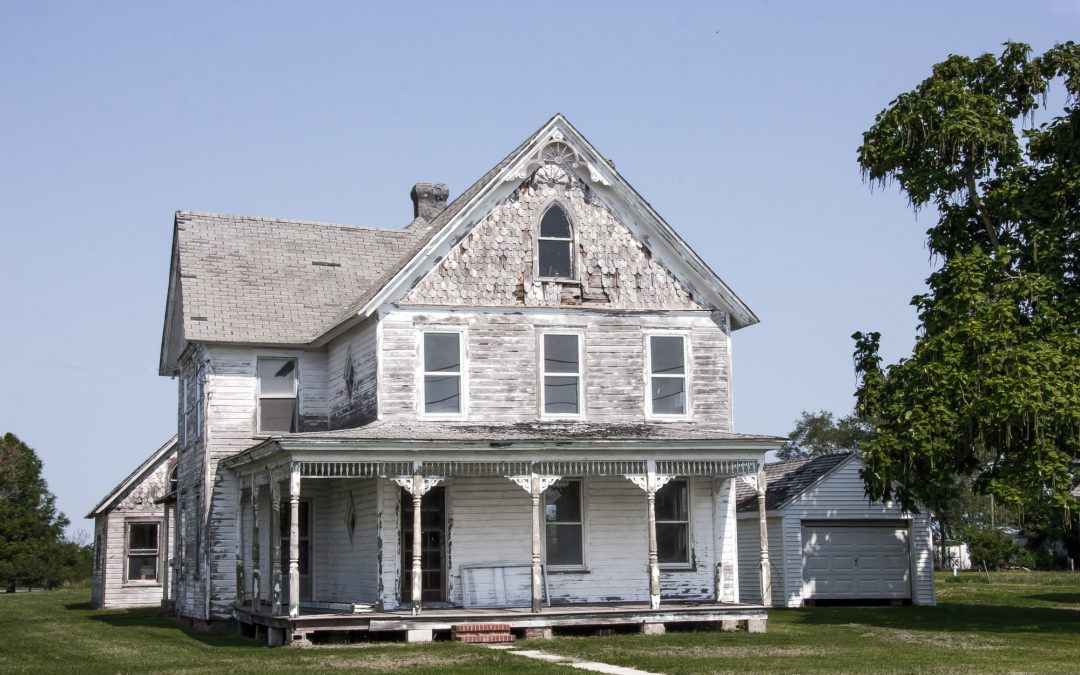If you’re thinking of buying a “fixer-upper” for your next home, it’s a great way to get an awesome deal if you’re willing to put in the work.
Even if you think you’re the next Chip and Joanna Gaines, it’s still important to enlist the help of a professional home inspector so you know you’re getting a safe piece of property.
What do home inspectors look at when they check out a beat up house? Read on to discover some insight so you can be prepared for your next home inspection.
Foundation and Basement
Most fixer-uppers are older homes, which means there’s always a possibility of foundation issues. One of the most common things that fail a home inspection is a crumbling or damaged foundation.
Your home inspector should look closely at the basement floor and walls. If the home is on a slab or crawlspace, they’ll look for any signs of cracks or crumbling concrete.
Homes without a good foundation will eventually fail. If the fixer-upper has a basement, there should be no visible signs of water, and it should also have the proper drainage or a sump pump.
Keep in mind that some settling is normal, and your foundation won’t be perfect on your fixer-upper home. However, the foundation should still be solid and show very little signs of water damage or other major structural red flags.
Buying a house that needs work can be a great investment if you do it right. That’s why your inspector should always start with the most important part first: the foundation.
Keep in mind that your home inspector is not a specialist in this particular area. If they give you a bad home inspection report, you should consider hiring a contractor to make repairs, or walk away from the deal.
What do Home Inspectors Look at in Terms of Safety?
Many fixer-uppers could be rife with problems you can’t see. During your inspection, the home inspector will likely look for dangerous building materials.
Asbestos can be fine if it’s undisturbed, but if you’re planning to remodel, this material can be deadly. Any signs of asbestos must be reported, and you should consider paying for an abatement.
Lead-based paint is also common in most older homes. If this is present, you should at least consider applying a coat of primer and new paint over the existing paint colors.
Keep in mind that your home inspector may not have all of the tools to test for these building materials. They can, however, point out any red flags and make recommendations for you to get everything professionally tested.
Visible mold and mildew are other potential health hazards that can be common in a beat up house. Over time, water can leak and seep into the walls or floors, resulting in dangerous mold and rotting wood.
When it comes to things like radon, you’ll need to pay for a radon test separately. Do your diligence to ensure that your fixer-upper is safe before you make the deal.
Besides dangerous materials, the inspector will also take a look at the roof. If the roof looks like it’s sagging or missing a lot of shingles, it could be time for a replacement.
Although you can save quite a bit of money on a fixer-upper home, it’s important that the structure is safe. If there are glaring issues, it can become a costly endeavor once you close.
Don’t be afraid to ask your home inspector about any red flags they see. If there are problems that might cost you more than you’re willing to spend, you may want to reconsider purchasing the home.
Electrical, Plumbing, and Sewer
Building codes are constantly changing, but a fixer-upper may not have everything current and up to code. What do home inspectors look at when it comes to the electrical, plumbing, and sewer systems?
Remember, a home inspection is designed to address any problems that are obvious and glaring. You should always get a second opinion if you’re concerned about these major components of the home.
Ideally, the inspector will make sure that all of the outlets are working properly. They’ll also take a close look at the breaker panel to make sure everything is in good condition and working as it should.
Some older homes may have lead pipes for plumbing. The inspector will look for leaks and any other signs that a serious problem could be heading your way.
The sewer or septic system should be clear and working correctly. The inspector should check the sewer line to look for any signs of age or damage.
If your fixer-upper uses a septic system, you may need to contact a septic company to do a thorough inspection. Ask the current homeowner when they last had the septic tank pumped.
In general, signs of water damage, electrical wiring problems, or sewer backups will indicate that you could be due for costly repairs. Ask your home inspector what they’re looking for so you’re confident the home is safe.
Always Inspect a Fixer-Upper First
If you’ve ever asked, “what do home inspectors look at in a fixer-upper,” use this guide to help you make a sound decision. Remember, fixer-upper homes are a wise investment only if they’re safe and structurally sound.
Make a list of any items you see on the report that concern you and talk to the seller about your concerns before you decide to buy.
For more information about our services, visit our website or schedule an inspection today.

